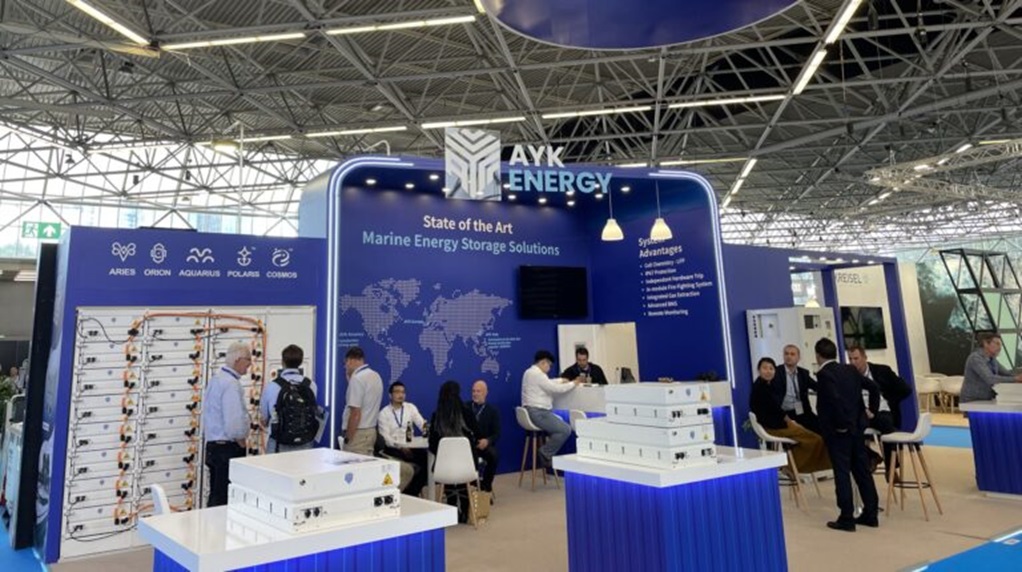Marine battery manufacturer AYK Energy has hailed a significant breakthrough in electric propulsion technology for ships with what it claims is the first battery sold at $300 per kWh.
AYK founder Chris Kruger said the milestone will accelerate the adoption of battery powered vessels. He said the previous industry standard price was around $450 to $550 per kWh mark having started at $1,600 per kWh in 2012. Kruger said for a ropax operating a 60 megawatt-hour (MWh) battery the Pisces battery can save more than $10m on the battery sale price, while for a 25 MWh battery the saving is around $4m.
The Pisces battery is designed for ships taking longer range voyages rather than high speed short distance trips.
The new battery is set to ramp up production at AYK’s factory in Zhuhai, China with sales already projected to exceed 100 MWh in 2024.
Kruger is known as one of the pioneers of marine battery technology, having worked first in the electric car industry before moving to marine. He developed the battery for the first hybrid propulsion ferry, Princess Benedikte, and the first fully electric ferry, Ampere, in 2012. He founded AYK Energy six years ago in the landlocked Pyrenean nation of Andorra.
Latest data from DNV, a class society, show that 940 ships in operation use batteries for propulsion or in a hybrid power system, and 433 of the ships on order will use them.
Tags: AYK Energy, Battery, Manufacturer



Recent Posts
Himachal Pradesh Plans Major Boost to Public Transport with E-Buses and Digital Upgrades
Ammonia-Fueled Container Feeder Design Marks Progress in Maritime Decarbonisation
ABS Develops Industry-Leading EV Battery Fire Simulation Modeling
Wilhelmsen Ships Service Joins the Maritime Battery Forum to Accelerate Maritime Electrification
Indian Student Team Wins Communication Prize at Monaco Energy Boat Challenge 2025
Babcock’s LGE Business Secures Contract for Marine Ammonia Fuel System to Advance Shipping Decarbonisation
Associated Terminals Deploys Liebherr’s All-Electric Cranes in Landmark Move Toward Cleaner Cargo Handling
Sanmar delivers fully electric emissions-free tug to major global operator Svitzer